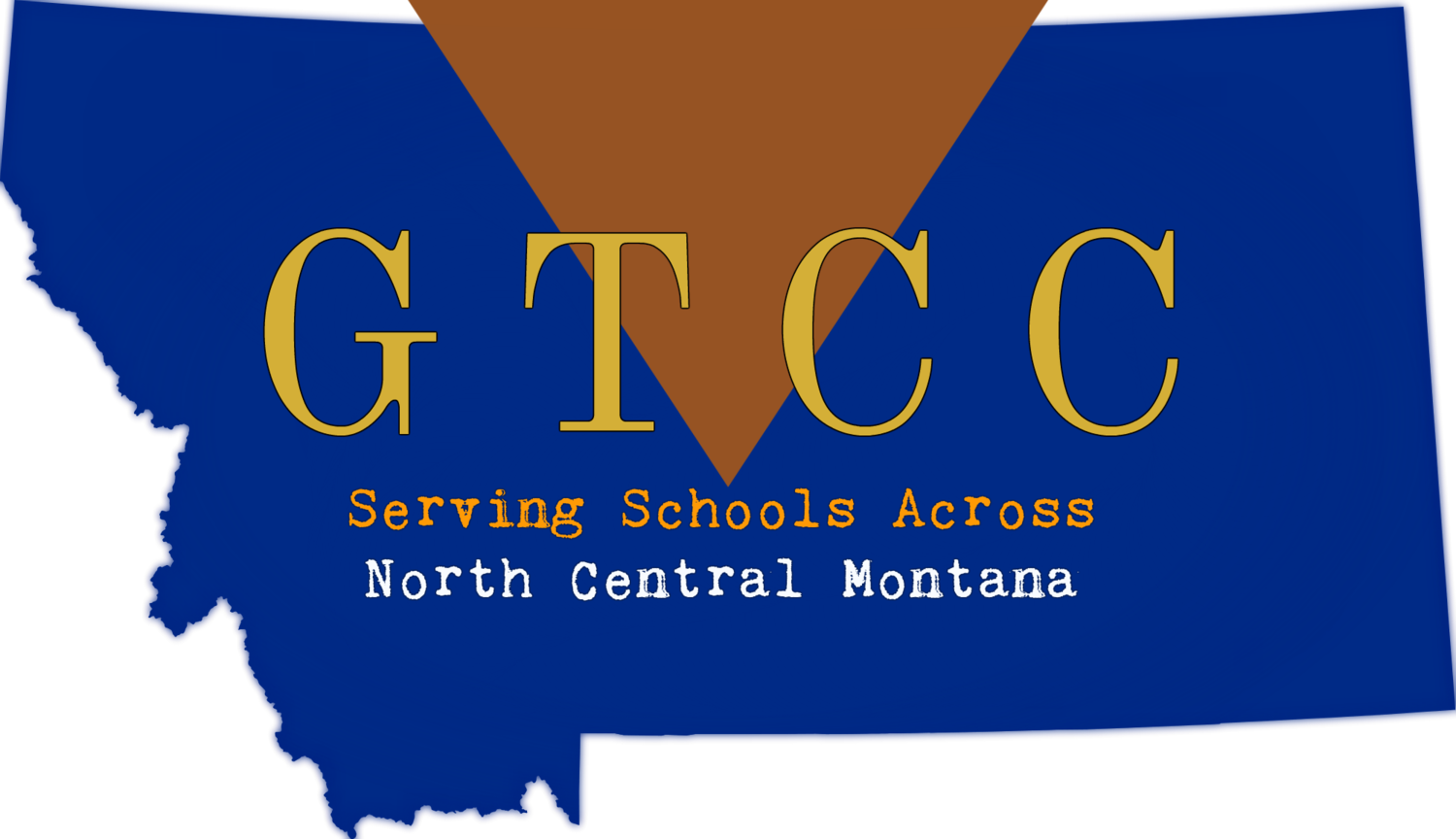About the Golden Triangle Curriculum Cooperative
The Golden Triangle Curriculum Cooperative was formed in 1989 and adopted by the Montana Board of Public Education to enable our schools to stay in compliance with the following Chapter 55 Accreditation Standards which are required for annual reporting:
10.55.102: (1) Curriculum and instruction of the content standards under this chapter shall incorporate the distinct and unique cultural heritage of Montana American Indians pursuant to Article X, section 1(2) of the Constitution of the state of Montana and 20-1-501 and 20-9-309(2)(c), MCA.
10.55.104: (3) The standards review process shall use context information, criteria, processes, and procedures identified by the Office of Public Instruction with input from representatives of accredited schools.
10.55.603: (4) For content standards in all program areas pursuant to the requirements of ARM 10.55.602, school districts shall: (b) review curricula at least every five years or consistent with the state’s standards revision schedule, and modify, as needed, to meet the goals for the integrated strategic action plan pursuant to ARM 10.55.601; (c) review materials and resources necessary for implementation of the curriculum and assessment at least every five years, or consistent with the state's standards revision schedule that are consistent with the goals of the integrated strategic action plan pursuant to ARM 10.55.601; (d) review curricula and instructional materials and resources to ensure the inclusion of the distinct and unique cultural heritages and contemporary portrayal of American Indians.
10.55.704: (2) School systems with 100 or more FTE licensed staff shall employ a full-time curriculum coordinator to supervise the educational program and alignment of standards, assessment, curriculum, instruction, and instructional materials. The curriculum coordinator shall hold a Class 3 Administrative License. Those districts with fewer than 100 FTE licensed staff and no full-time curriculum coordinator shall employ the services of a consortium, multidistrict collaborative, or interlocal cooperative, or a part time, designated curriculum coordinator. Description of planned progress toward implementing all content and program area standards, in accordance with the schedule in ARM 10.55.603.
10.55.1801: (1) In general, a basic program in library media shall: (b) include the following practices: (i) cooperate and join with other libraries, information agencies, and community resources in the sharing of materials.
10.55.1901: (1) In general, school counseling shall: (b) include the following practices: (i) maximize students' potential in the areas of academics, career, and personal/social development; (ii) develop, implement, and assess a curriculum aligned with the American School Counselor Association (ASCA) national model which includes the student standards for success, mindsets, and behaviors which is presented through structured groups and classroom presentations; (v) provide system support through management, consultation with staff, community outreach, and public relations; and collaborate with families, community stakeholders, and other educators to create environments resulting in positive impact on student achievement, attendance, and discipline.
10.54.2503 (3) The standards review process shall use context information, criteria, processes, and procedures identified by the office of public instruction with input from representatives of accredited schools.
As the GTCC grew from 16 schools to 53 schools and districts, it was expanded to include professional development as well as supporting state compliance with curriculum development. The Summer Institute began with 2-3 classes and has grown to 20-25 high quality, two-day, college credit classes happening every June and July; teachers attend the Summer Institute from all over the state of Montana.
The Golden Triangle Curriculum Cooperative also supports member schools’ compliance with Ch. 55 Accreditation Standards in the areas of Indian Education For All (IEFA), content-specific professional development, and regular, annual collaboration of all subject areas.
Through collaborative efforts, the Golden Triangle's members have made it possible to provide quality training and resources to assist member schools as they plan, design and implement curriculum and assessment programs within their districts.
Curriculum for 14 content areas is written in alignment with state standards and continues revision on a rotating, five year basis. Teachers from member schools are needed to attend revision meetings and take part in curriculum alignment. The state tells us the content to teach; we break it down into teachable pieces, which is the curriculum, and that is what teachers should be teaching each day in their classrooms. GTCC member educators guide, research and write the curriculum objectives for each specific content level. Regional master committee meetings and periodic revisions to documents are ongoing processes that improve the developed materials.
Our revision meetings are a way for teachers to become experts and bring knowledge back to their schools. Curriculum revision and alignment by teachers of member schools is at the heart of what the Golden Triangle Curriculum Cooperative is and does. Having a well-developed curriculum supports teachers in their classrooms to be their best.
